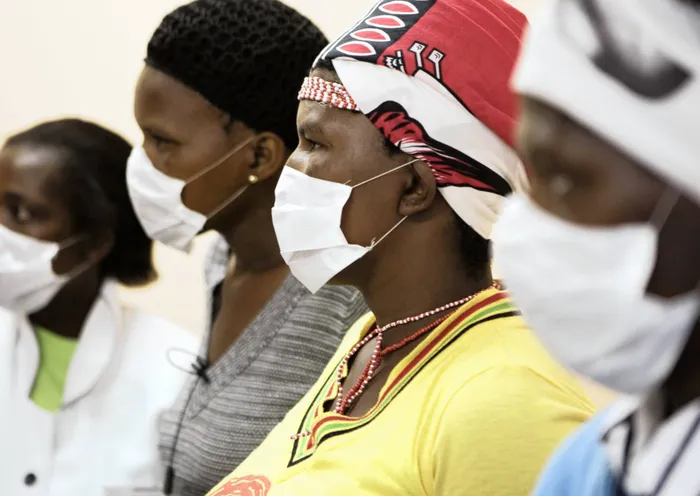Red tape bars access to TB drug

Waiting: Patients wear masks while awaiting consultation at a clinic in Khayelitsha, Cape Town. SA, has a serious epidemic of drug-resistant TB. Waiting: Patients wear masks while awaiting consultation at a clinic in Khayelitsha, Cape Town. SA, has a serious epidemic of drug-resistant TB.
Johannesburg - SA’s drug regulatory authority is placing unreasonable hurdles in the way of desperately ill and dying patients with drug-resistant tuberculosis, stopping them from accessing a new drug that offers their only hope.
The US and European drug regulators are pulling out all the stops to register bedaquiline, or TMC207, but the SA Medicines Control Council (MCC) has shown no intention of following suit, according to Médecins Sans Frontières (MSF).
Many other countries with stringent regulations on drug safety – including France and the UK – are already providing bedaquiline under compassionate use regulations, despite the fact that they have far fewer patients.
MSF earlier sought a commitment from the MCC to allow expanded access to the drug and hopes that it will similarly fast-track the review process, which could result in the registration of the first new TB drug in more than 50 years.
“While MSF awaits registration of bedaquiline in South Africa and therefore broader access, access to this life-saving drug for patients with few other treatment options should not be denied without adequate explanation. As the Department of Health and the MCC prolong their decision on expanded access to bedaquiline, patients with drug-resistant tuberculosis in need of the drug are dying,” it said.
The MCC initially gave approval for compassionate access last year, but then withdrew the approval, and none of the patients who would have benefited from the drug have received it. Many have now died.
Compassionate use allows for the dispensing of investigational drugs before they are registered and enter the market.
MSF and other organisations around the world have attempted to use bedaquiline for a select few patients with multidrug-resistant TB (MDR TB) and extreme drug-resistant TB (XDR TB). For many of these patients there is no other hope and bedaquiline offers a last chance of survival.
“To date, only very few patients in South Africa have been able to access bedaquiline through the clinical trials that were and are being conducted in this country. This is despite a number of patients from other countries [for] whom current treatment is unlikely to be effective accessing the drug through ‘expanded access’ or ‘compassionate use’ criteria,” MSF pointed out.
Delays in MCC approval for this promising new drug comes despite appeals from civil society and health organisations to ensure that bedaquiline be made available for drug-resistant TB patients with limited options.
In April, the Global Tuberculosis Community Advisory Board, the Southern African HIV Clinicians’ Society, The Aids & Rights Alliance for Southern Africa and the Treatment Action Campaign wrote a public letter to the minister of health and the MCC to highlight the urgent need for compassionate use of bedaquiline in SA.
This was followed by another public letter to the MCC by MSF, The Southern African HIV Clinicians’ Society and dozens of concerned health-care workers, calling for compassionate use of bedaquiline for drug-resistant TB in SA. The MCC responded by asking the Health Department to submit a clinical trial protocol, adding another hurdle to access of bedaquiline.
“The hands-off attitude of the MCC paints a sad contrast with the proactive approach of the US Food and Drug Administration [FDA],” MSF said. It did receive approval from the MCC in August last year to use the drug on compassionate grounds, but the manufacturer, Janssen Pharmaceuticals (formerly Tibotec), was verbally informed by the MCC to not give MSF TMC207.
SA has a serious epidemic of drug-resistant TB – every year about 10 000 people are diagnosed with MDR TB, with a substantial proportion developing XDR TB. Under the best circumstances, treatment with current, mostly very old drugs is successful for only about 60 percent of MDR TB and 44 percent of XDR TB patients.
The FDA aims to decide whether to approve the drug within six months of the application of the submission, rather than the standard 10 months. The European Medicines Agency is considering conditional approval for the use of the drug.
The MCC failed to respond to requests for comment. – Health-e News Service